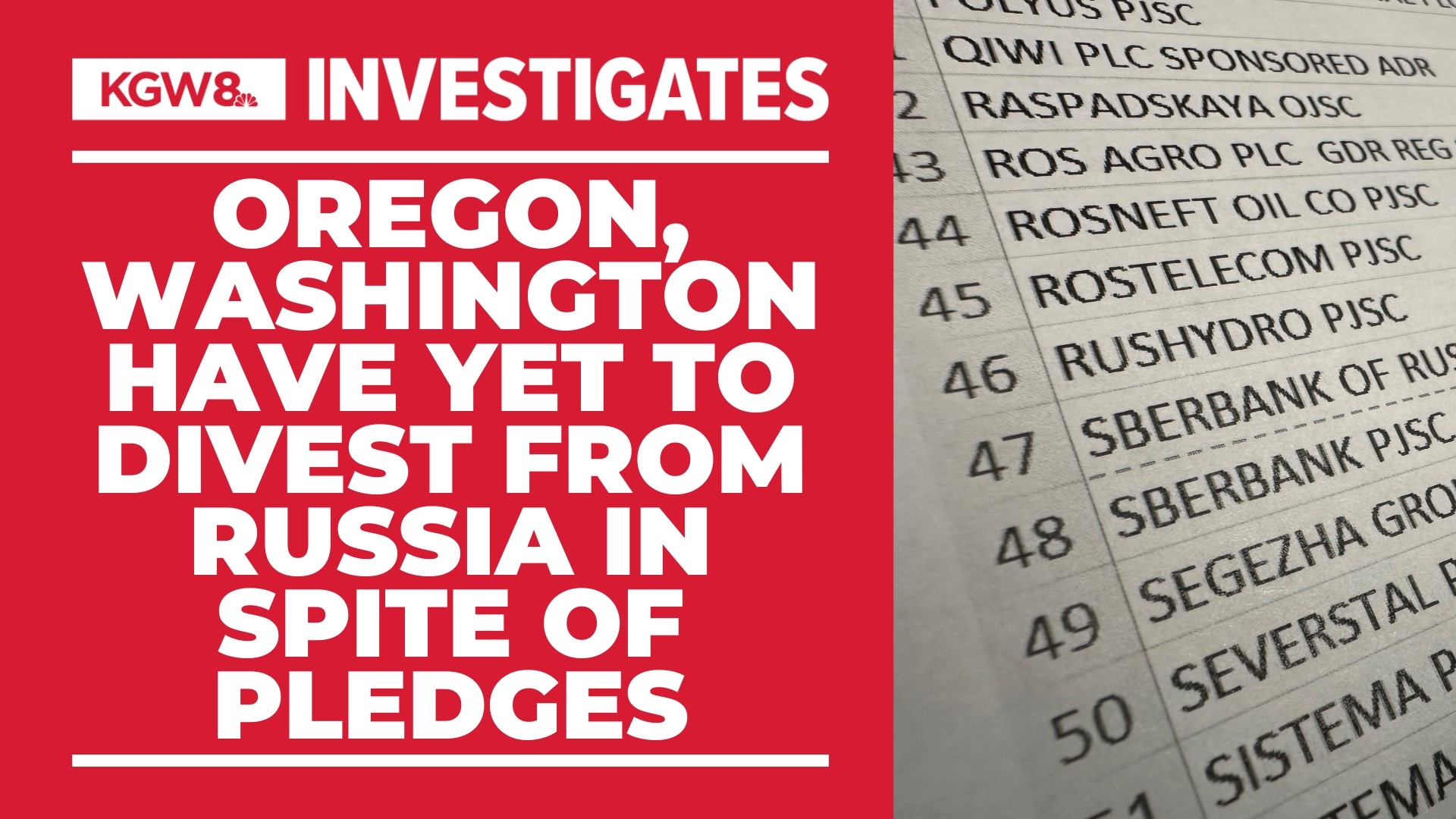PORTLAND, Oregon — Following Russia’s invasion of Ukraine, many states — including Oregon and Washington — promised to cut financial ties with Russia. Two years later, KGW found that those promises have been unfulfilled.
Both states are still sitting on Russian investments while the war rages on. In late February, President Biden called for new sanctions on Russia after the death of opposition leader Alexi Navalny in a Siberian prison.
Russian investments including bonds, public equity and currency represent just a tiny fraction of Oregon’s $93 billion dollar pension fund portfolio for government retirees. Even so, Oregon State Treasurer Tobias Read directed staff to divest from Russia in March 2022.
“The situation in Ukraine is serious, tragic, and growing more desperate by the day,” Read wrote in a March 2022 statement.
Oregon and Washington — along with many other states that vowed to sell off Russian investments — ultimately found that it wasn’t so easy. Russia’s economy had been cut off from the rest of the world, making it nearly impossible to divest. The value of those assets plummeted.
Oregon’s Russian investments were valued at roughly $137 million in March of 2022 and $67 million a month later. By June of 2023, the state’s Russian assets had shrunk to $49 million.
“There is no fund in the country that can move with the lightning speed of the of the news cycle,” explained Tom Sanzillo of the nonprofit Institute for Energy Economics and Financial Analysis.
According to a spokesperson for the Oregon State Treasury, fund managers continue to attempt to sell shares and not purchase any new shares of Russian assets. No benchmarks or deadlines have been set for the state to fully divest.
KGW made multiple requests for an in-person or Zoom interview with Treasurer Tobias Read starting on February 15. Read's office declined KGW's multiple requests for an interview.
“I'm disappointed. It's not a proper administrative response to say nothing,” said Sanzillo, a former first deputy comptroller for the state of New York.
Washington state took a similar position on Russia. It planned to get rid of roughly $100 million dollars in assets linked to Russia. Two years later, the Washington State Investment Board admits, it’s still holding Russian investments but wouldn’t provide their estimated value.
“Given the illiquidity of Russian securities, it is currently difficult to assign an accurate value to our remaining holdings,” wrote James Aber, institutional relations director for the state investment board, in an email to KGW.
The situation with Russia highlights longstanding questions about the risk of investing with certain countries and the state’s role in socially responsible investing.
In 1987, the Oregon Legislature passed a law that required the state to divest in companies doing business in South Africa due to apartheid. In 2005, state lawmakers took similar action when Sudan was accused of atrocities in its fight against rebels in Darfur.
Currently, the Oregon Legislature is considering a bill that would divest from coal — but not oil and gas. The goal is to reduce greenhouse gases responsible for climate change.
“They’re just fund managers with a small, negligible fund from a worldwide perspective,” explained Sanzillo. “And we’re saying to them — solve climate change and solve the invasion in Ukraine. You have to have a little perspective on this.”

